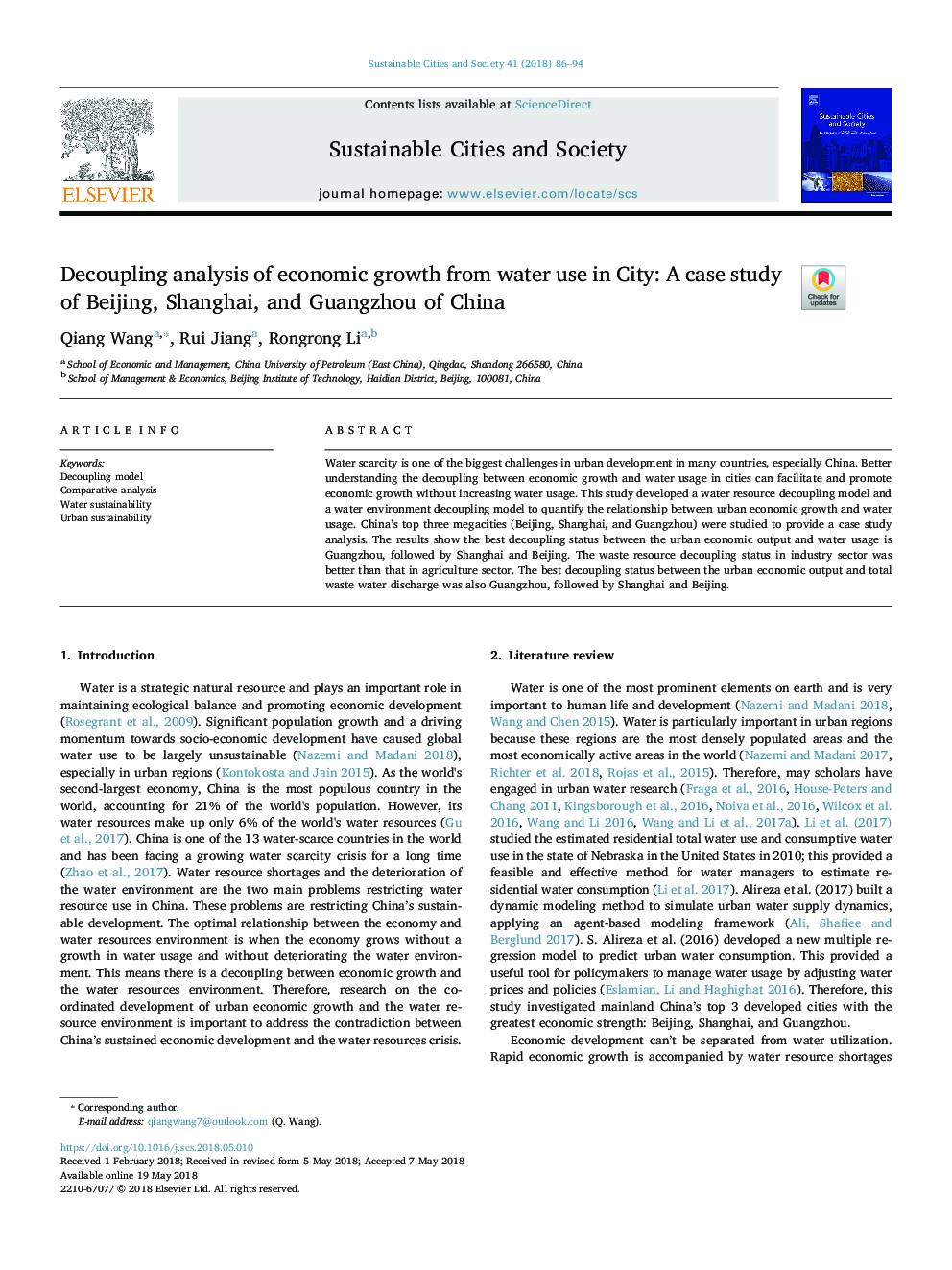| Article ID | Journal | Published Year | Pages | File Type |
|---|---|---|---|---|
| 6774871 | Sustainable Cities and Society | 2018 | 9 Pages |
Abstract
Water scarcity is one of the biggest challenges in urban development in many countries, especially China. Better understanding the decoupling between economic growth and water usage in cities can facilitate and promote economic growth without increasing water usage. This study developed a water resource decoupling model and a water environment decoupling model to quantify the relationship between urban economic growth and water usage. China's top three megacities (Beijing, Shanghai, and Guangzhou) were studied to provide a case study analysis. The results show the best decoupling status between the urban economic output and water usage is Guangzhou, followed by Shanghai and Beijing. The waste resource decoupling status in industry sector was better than that in agriculture sector. The best decoupling status between the urban economic output and total waste water discharge was also Guangzhou, followed by Shanghai and Beijing.
Related Topics
Physical Sciences and Engineering
Energy
Renewable Energy, Sustainability and the Environment
Authors
Qiang Wang, Rui Jiang, Rongrong Li,
